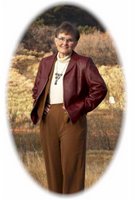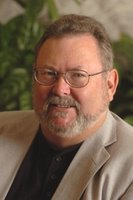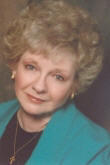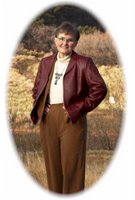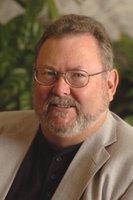
In my earlier entry, Stardust, I talked about the effect success and celebrity can have on an artist's life. Here’s the second part ....
~~~
Success. Celebrity. Popularity It can happen to you. Perhaps it already has. But if it hasn’t, now is your best time to prepare for it. Not after it’s already happened, but now.
Well-known authors are often caught up in a whirlwind once the "celebrity syndrome" strikes. Publishers want more books, more often. Fans write and want replies. Bookstores want book signings or readings. The media want interviews. Writing conferences want speakers and teachers. Authors, Christian authors, especially, seem suddenly to become counselors and experts on the human--and spiritual--condition.
If authors aren't careful, they can find themselves doing everything but writing, and perhaps not doing any of it very well. But it’s heady stuff, this celebrity status. Publishers want you, fans love you, the emotionally needy or hurting seek you out. You’re in demand. A star. Suddenly, there’s a tremendous drain on your time, your energy, your health, your marriage, your role as a parent and a family member.
Once you’re caught up in the storm it’s more difficult to handle the flying objects. The time to decide how you’re going to deal with success, if it comes, is
before it comes. It needs to be worked out between you and God in advance. With his guidance, set your priorities and make a commitment--to Him--to keep those priorities in order. Because if you don’t go into it with an uncompromising clarity as to your priorities, you may find that you have none--or that they’ve been in the wrong order all along.
You might give some consideration to what others have found beneficial in preparing for and dealing with success:
Hold it with open hands. It’s fleeting. Just like anything else in life, success can vanish in a puff of smoke--and often does. So don’t attempt to claim it as an entitlement or a permanent fixture of your life. It’s neither. Accept it merely as an avenue through which God can work, with you as a partner, to accomplish his will.
Don’t believe your own press--the good or the bad. Praise can be every bit as deceptive as criticism. Follow your own instincts and listen for the voice of the One who knows you best.
Celebrity, more often than not, is fickle and altogether untrustworthy. I heard recently of one very wise author who turned down what sounded like a sweet, sweet deal with a publisher who hadn’t known she existed until she hit the charts and started getting a fair amount of media attention. At that point, the prospective new publisher moved in with a bag stuffed full of staggering figures and some altogether unrealistic promises. This particular author wasn’t overly impressed with what was happening to her and had the common sense to realize that if her sales numbers went down, even a little, and if the competition in the market tightened still more, the publisher who was courting her, judging from past history, would lose interest in a heartbeat and go on to more lucrative prospects. She had the savvy to realize that a contract or multiple contracts wouldn’t insure her longevity as one of their "stars."
Contracts, unfortunately, are not always written with "permanent ink."
She refused to take herself--or her publicity--too seriously. And that’s a point that in itself deserves some attention. We writers--yes, Christian writers as well--sometimes tend to see ourselves as indispensable and even entitled to whatever respect and attention we receive. We’re "doing God’s work," after all, aren’t we? Touching hearts, even changing hearts. He’s using us to further his kingdom, isn't that so?
While all that might be true, we’re merely a few among many. The fact that we might be more visible than thousands and hundreds of thousands of others who work unnoticed and often unappreciated doesn’t mean that our work is more valuable, more important to his kingdom. Even if we excel at what we do and become highly esteemed, that echo of praise we hear isn’t necessarily the applause of heaven.
We have to realize that we’re merely a part of a world and an entire community, and although what we write might have some impact on other lives, even lead a few to God, this is still a temporary run, and there are far more important things on God’s mind for us--and in his long-term plan for his world--than whether we’re writing the best fiction around or if we're appearing on the bestseller chart or on the publisher’s "star author" list. I seriously doubt that God is keeping an account of the number of books we’ve published this year or how many book signings we’ve done or how many fan letters we’ve received. On the other hand, it’s probably safe to assume that He does keep watch on the heart.
And in that regard--with his help--we need to keep a
humble heart. Never forget that in the past God has been known to use a donkey to make his point. In truth, He really doesn’t need even the best of our abilities, although certainly He uses them if we don’t hug them too tightly to ourselves.
Remember that "it takes a village" to make a book. I’m the writer--but I’m not the entire process. It truly does take many working in community to produce a book of genuine quality: writer, editors, artists, proofreaders, production staff, marketing personnel, sales staff, publicists--too many others to count. All those people our readers have never heard of and probably never will--without them, there would be no book. And God values their work just as much as He values the writer’s efforts. He guides their part of the process just as He guides the writer’s, and He smiles on a job well-done by all.
All.May we keep a servant’s heart. Christ didn’t occupy Himself with taking bows, but instead washed his disciples’ feet. He spent more time praying than performing, more energy feeding the hungry and healing the sick than drawing attention to himself. He devoted his time and effort to doing his Father’s will and caring for his people instead of playing to the crowds or making a name for himself.
And always, He
lived. He lived in the world. He was a participant, not a spectator. He didn’t sit at a desk 24/7 and expect to absorb a wealth of wisdom or unique ideas or develop greater spiritual awareness or true compassion for the multitudes. He went out among the people, and no matter how busy He was with the Father’s work, He made the effort to know those people, took time to listen to them, to speak with them, to offer a helping hand to them. He took time to love them.
He willingly, deliberately, totally, set aside all personal glory in order to glorify the One Who sent Him. He was a Servant who never sought success. He became a Sacrifice, not a celebrity. A suffering Savior, not a temporary "star." He claimed nothing for Himself, but gave away everything.
If Jesus were to give a seminar on how to handle celebrity and success ... I somehow think he might walk quietly into the room, hold out his hands in offering, and then turn and walk away without saying a word.
-BJ Hoff, author of
A Distant Music and
The Wind Harp. http://www.bjhoff.com/http://www.bjhoffgracenotes.typepad.com/












